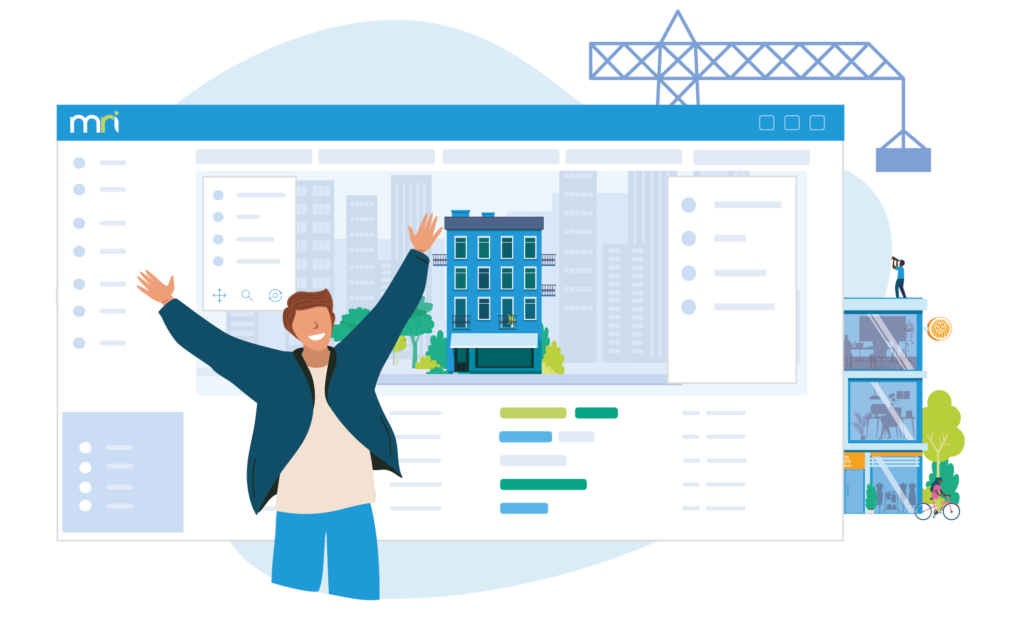The top 7 benefits of workflow automation for your business
How much of your workday is dedicated to manual processes that you are convinced could be automated?
Despite the rapid evolution of AI technology, many companies persist with manual tasks that sap productivity, burn through resources, and send employees to sleep.
Just consider the following:
- In a survey of 2,000 work activities, approximately 45% could be automated.
- 74% of business leaders and employees believe parts of their job could be automated.
- Employees spend 20-40% of their time manually searching for documents.
These statistics merely scratch the surface of the problem. Too many organisations still rely on time-consuming, repetitive tasks to function day-to-day, and this has a noticeable impact on their overall performance.
To break through the bottlenecks associated with manual processes, now is the time for businesses globally to embrace the benefits of workflow automation software.
Below we will showcase the benefits of workflow automation and how project planning for all types of tasks can be applied in companies of all shapes and sizes.
What is workflow automation software?
Workflow automation is when business processes can be launched and executed without the need for any human intervention. By applying rule-based logic, each step of a task can automatically be routed to the relevant people and systems needed for it to be completed.
With automation for real estate, emails are sent to employees, clients and customers. Reminders are organised. Tasks are always scheduled. Announcements are published. All this and more is made possible with workflow-related project management software, without anyone in your team pushing a single button.
Through these pre-built rules, organisations can eliminate many of the manual tasks and paper-based processes that were the bane of their employees’ lives. This means improved productivity, reduced costs, and overall better experiences for team members and customers.
Why do you need workflow automation?
In today’s real estate business industry, efficiency and consistency are essential to remaining competitive. Automation removes manual tasks and instead allows you to focus time and money on high-value activities. This can lead to enhanced client relations and quicker sales turnovers, allowing your business to thrive in the market.
How does workflow automation work in different sectors?
Most workflow automation software will be based on a range of if/then rules and statements, which depending on the answer will trigger the next task.
The best forms of workflow automation technology will make it easy to set up these business rules. For instance, MRI’s workflow automation module employs a straightforward drag-and-drop interface that users can effortlessly tweak and adapt as their business evolves.
Here’s how workflow automation can be used in different sectors:
Facilities management
There are numerous workflow automation benefits in facilities management. As an example, consider the workflow process behind a cleaning task within your facilities:
- An employee logs the problem with their helpdesk.
- The task is immediately created and scheduled in your facilities management software.
- It is then assigned to a relevant cleaner, who is automatically notified about the job.
- Reminders are sent to the cleaner prior to the time attached to the cleaning job.
- The cleaner is sent any resources or materials they require relating to this task.
- Once the job is completed, they sign it off on their device, instantly informing the employee and helpdesk that the task is done.
- The task is then immediately logged as complete and taken out of the active schedule.
This is just one example of process automation that can be achieved through this software. Other examples include receiving immediate alerts relating to business problems or incidents, sharing health and safety notices or updates, and updating asset management data.
Human resources
Workflow automation can assist human resources in a real estate business by automating recruitment processes and streamlining onboarding experiences. It can also assist with staff management by publishing important HR announcements and checking compliance on project tasks.
Finance
AP automation can assist with scheduling payments for recurring invoices, automating payroll management, and integrating data between accounting systems. It can also help with maintaining suitable stock levels, helping to streamline overall financial operations.
Sales
Real estate sales need speed, and workflow automation can assist with enhancing overall efficiency. This includes building lists of potential leads, guiding leads from start to finish, sending emails for stronger customer service, and receiving regular reports and analyses.
Automation for leasing offers a streamlined approach that can speed up the leasing process. From capturing potential tenant details to ensuring timely communication, automation tools facilitate a seamless transition at every step. Automated reminders can be set for lease renewals or rent collections, ensuring punctuality and clarity in transactions.
IT
The tech side of a real estate business can also use automated workflows. Automated workflows can manage IT tasks, ensure timely software updates, and perform regular system checks. This will keep the IT sector completely up to date, all with reduced manual effort.
Marketing
Marketing is critical to reaching and converting new clients. With workflow automation, it is easier to collaborate with content departments globally, oversee campaigns in real time, and establish consistent nurture journeys. You can also install more efficient approval processes, allowing your marketing team to operate effectively.
The top 7 benefits of workflow automation systems
Here we have listed the top benefits of automated workflow:
Ability to cut costs and save time
One of the standout benefits of workflow automation in real estate is its capability to boost operational efficiency. As tasks are automated, employees spend less time on routine activities. This increased efficiency leads to saved time and expenses.
Clearer company-wide communication
A high-quality workflow automation system will actively centralise all company communications. This not only streamlines activities and boosts performance, but also leaves a definitive digital trail that companies can use for reference to ensure accountability.
With automation, paperwork can be substantially reduced across an organisation. This both reduces the chances of critical information being lost and improves its environmental credentials.
Reduction of human error
Human error in the workplace can result in additional expenses, loss of productivity and potential compliance issues. However, by automating the process of assigning tasks, logging data, and communicating with employees, the possibilities for human error are greatly reduced. This means more consistent performance and operational efficiency, and fewer chances for this to be derailed by an unfortunate mistake or oversight.
52% of business leaders believe workflow automation leads to a noticeable reduction in manual errors.
Better task flow management
Introducing workflow automation software lays the foundation for a more efficient, productive organisation. By cutting down time-consuming tasks, be it the number of helpdesk phone calls or manually updating data, employees will have more time to devote to critical tasks. This allows for faster task management and completion overall, ensuring your resource management is handled more efficiently.
80% of business leaders believe that employees could save up to 60 hours a month through workflow automation.
Increased possibility for strategic thinking
The time unlocked by workflow automation can be utilised by management teams to guide their companies forward. Rather than be caught up in the minutiae of manual tasks, business leaders can concentrate on the bigger picture.
A solution that consistently monitors workflow performance allows companies to harness this insight for data-driven decisions. Instead of relying on gut instinct or guesswork, teams will have the information they require to determine their next steps.
This will also give management clearer visibility over their workflows than they would ever have had when processes were primarily manual. They will be in a better position to spot issues and promptly rectify them.
Nearly 20% of CEOs’ time is dedicated to work that could be automated.
Scalable process management
With good work management systems in place, scaling becomes far simpler. As more repetitive tasks can occur at once and with minimal human input, less manual labour is required. Not only does this improve their job satisfaction, but it enables companies to scale up without significantly expanding their workforce.
This benefit is enhanced by having the right solution in place. At MRI, our workflow automation software does not lock you into the configuration you selected from the outset. Instead, you can adapt this at any time to support your development. This ensures that you will have the ideal app alongside you now and in the future.
Stronger customer service and engagement
Improved automation inside an organisation can have a dramatic impact on customer experiences. Automated management tools will result in fewer errors and delays to services and business processes. This means work is more likely to be delivered accurately and on time, keeping customers satisfied and encouraging repeat business.
38% of firms are trying to enhance workflows with the aim of improving customer satisfaction.
How to incorporate workflow automation into your business
Workflow automation systems can help practically all departments in an organisation work smarter, not harder. That means that, regardless of size, scale, or industry, any business can harness this software and feel the benefits to productivity and employee wellbeing.
If you are wondering how and where workflow automation can support your own business processes, try the following exercise:
- Ask your employees what tasks they perform each day that are repetitive or mundane.
- Gauge your workforce’s opinion on automation – are they for or against it?
- Define business goals and KPIs relating to each repetitive task identified – speed, costs, number of workers, etc.
- Establish a potential workflow, listing the tasks that would need to be fulfilled for that task to be completed.
FAQs about benefits of workflow automation
MRI Evolution
Gain complete oversight of your facilities, elevate your workforce, and increase profit margins with one single source of truth.

Discover the benefits of workflow automation with MRI Software
Persisting with unnecessary manual processes can have a damaging effect on productivity, efficiency, and overall performance. By taking the step to identify and design automated workflows, your business will run smoother, and can be rid of boring, repetitive tasks for good.
At MRI, our workflow automation app adapts to your exact business needs. Whether you need to capture every detail at a granular level, or prefer a simpler, top-line system, you get to make those calls yourself. The system moulds around your business, not the other way around.
Get in touch today to learn how you can reap the benefits of workflow automation.
Workspace Priorities: APAC and Global Compared
Understanding which office features matter most to organisations can make a significant impact on effective facility management. From air quality to energy management, prioritising the right features can enhance workspace quality, drive employee sati…
